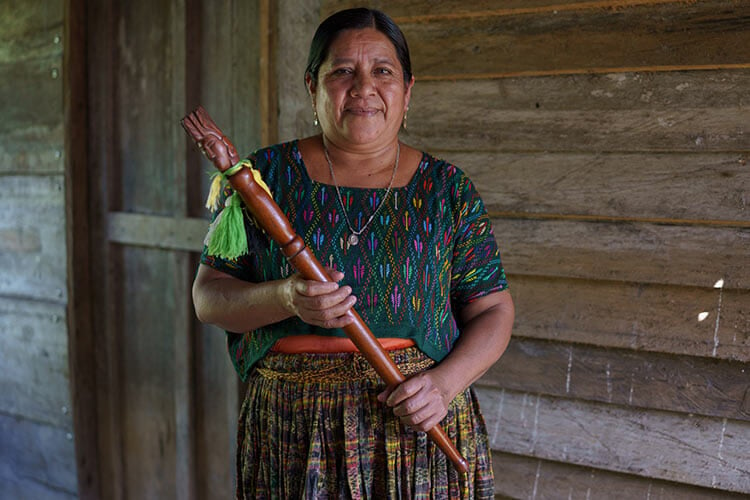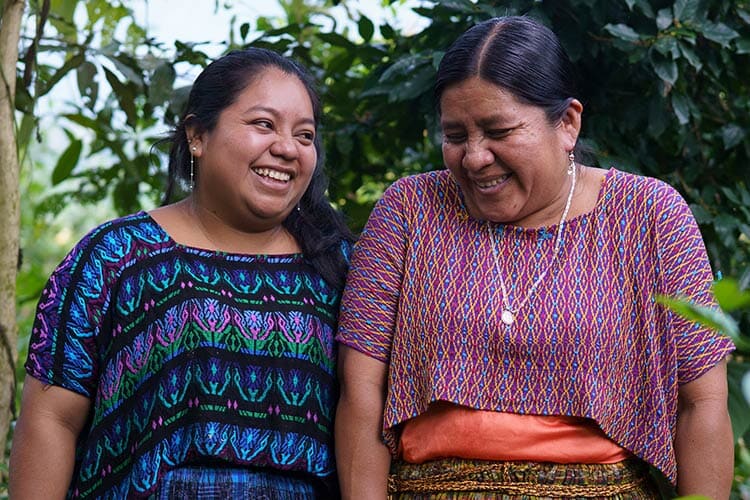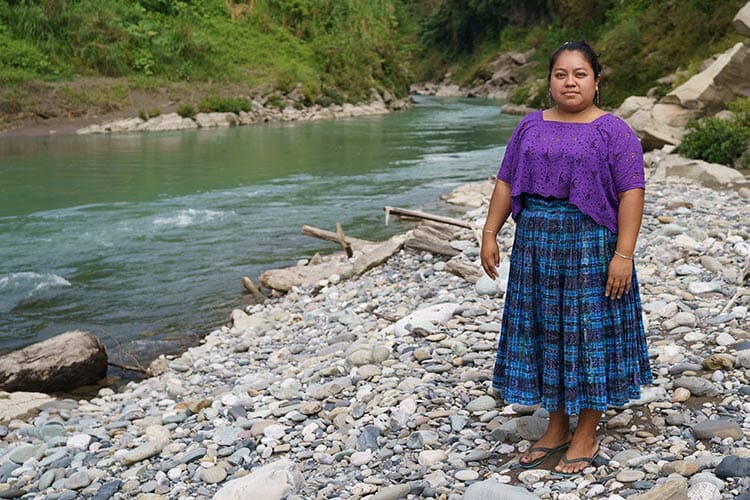For nearly two decades, AJWS grantee the Association of Communities for the Development, Defense of Land and Natural Resources (ACODET), has successfully fought off government plans to build a hydroelectric dam in Ixcán, Guatemala, that would force 19,000 Indigenous villagers to lose their homes.
ACODET is a grassroots coalition of 36 Indigenous farming villages that would be most affected — and the defense of their land and livelihoods has been an all-hands-on-deck effort. But in a culture where women are expected to devote their lives to housework and childrearing, ACODET and another AJWS partner, Puente de Paz (Bridge of Peace) have slowly but surely shifted these gender norms so both men and women can lead the struggle.
48-year-old Marta Santos Pop is one of those women. Today, she serves as one of her village’s Ancestral Authorities — a committee of community leaders that help settle local disputes. She proudly carries a wooden staff, passed down from leader to leader after each local election, signifying her role to everyone in the village.
“Until recently, women could not hold this responsibility. We didn’t have any rights within our communities, especially the right to lead. Our voices were not respected,” she says. “But these days, women also carry the staff. It’s a symbol that our ancestors speak through me.”

Today, Marta is a proud Ancestral Authority and an even prouder grandmother. For years, “everything was an enormous struggle,” she says. “But a struggle any mother would endure to protect her family.”
For 16 years, Marta survived abuse from her ex-husband — shielding her children from the brunt of his rage and alcoholism. He refused to let Marta work, but also refused to support his family, keeping them locked in extreme poverty.
“We’d go to bed when the sun set because we didn’t have enough money for candles,” remembers Marta.

As ACODET worked to mobilize all 36 villages to fight against construction of the hydroelectric dam, the women leaders of Puente de Paz held workshops for women of all ages empowering them to stand up for their rights at home, too. After years of abuse, Marta gathered the strength to leave her ex-husband and bravely raised her children alone — and eventually commanded respect at the community level, too.
For Puente de Paz coordinator Cecilia Vazquez, land defense is work that demands women to lead the charge.
“From the Mayan worldview, rivers and land have a feminine energy, and women are their guardians. This is why Indigenous women are deeply committed to protecting and defending their territories,” explains Cecilia. “As these communities have mobilized to protect their way of life, women have awakened and taken on new roles — standing shoulder to shoulder with men as equals. This phenomenon isn’t happening only in Ixcán, but across all of Guatemala.”
Thanks to Puente de Paz workshops, mentorship and empowerment training, many women in ACODET’s movement have risen as Ancestral Authorities. Women are now also a critical part of ACODET’s efforts to look out for sings that the government may once again restart efforts to build the dam. Women have become integral players in protecting the communities — while also changing them from the inside.

Today, Marta’s oldest daughter Flori serves as a “promoter” for ACODET, traveling between the movement’s 36 villages to meet with women, establish women’s support groups and ensure that women’s voices are represented in community-wide decisions.
“What we want is a wave of women to serve as leaders here,” says Flori. “And when I look at my mother, I feel so proud of her. She used to believe my father’s words; she thought she wasn’t useful at all. But I see her holding this staff, and I know she was wrong.”
Hearing her daughter’s adoration, Marta begins to cry.
“Puente de Paz has allowed women to reclaim our power,” says Marta. “Now, when I look at my daughters, I feel peace. They won’t suffer as much as I have. They know their rights.”

